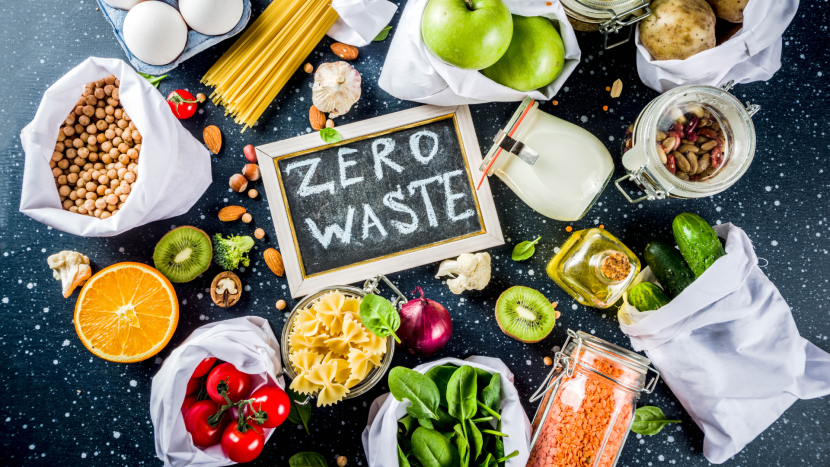Each year, almost one-third of all food produced worldwide—approximately 1.3 billion tons—is lost or wasted. Meanwhile, more than 800 million people are going to bed hungry every night. This shocking disparity exposes one of the largest paradoxes of our era: plenty of food being wasted while millions suffer from chronic food insecurity.
Food waste is not simply throwing away leftovers or expired products. It is wasted resources, lost labor, and lost opportunities to feed the hungry. Behind every missed meal is water, land, and energy that could have fed a needy family.
But here’s the good news: combating food waste is among the most tangible and far-reaching actions we can take towards stopping hunger. Throughout this blog, we will look at how food waste relates to food insecurity—and how innovative thinking, grassroots activism, and tiny everyday choices can close the gap between want and waste.
Understanding the Food Waste Crisis
Food loss is a worldwide problem that occurs at all levels—from farms to homes. Whereas food loss takes place during production and transportation (prevalent in developing nations), food waste tends to occur at the retail and consumer level, particularly in developed countries.
Every year, roughly 1.3 billion tons of food that can be eaten is wasted—enough to feed 2 billion people. This is caused by such factors as cosmetic requirements, buying too much, misleading expiration dates, and oversized portions. It is usually because of inadequate storage and transport infrastructure in poorer areas.
In addition to hunger, food waste also hurts the environment—nearly 10% of greenhouse gas emissions globally. Simply put, food waste isn’t simply a lost meal—it’s an opportunity lost in the battle against hunger and climate change.
The Face of Food Insecurity
Food insecurity is lacking stable access to sufficient healthy food for a full life. It’s not hunger alone—it’s about uncertainty, poor health, and limited opportunity.
It touches millions of people worldwide, but most notably vulnerable groups such as children, the elderly, low-income households, and marginalized communities. Its effects reach far and wide: undernourishment among children, compromised immune systems, poor school performance, and even mental illness.
As some portions of the globe waste food, others barely have access to one meal. The increasing gap reveals the critical importance of redistributing resources and reframing our food systems to avoid leaving anyone behind.
The Missed Opportunity
Each wasted meal is an opportunity lost to feed the hungry. A majority of food that winds up in landfills is still safe and edible—yet never gets to those who are hungry.
Reducing food waste can make a big dent in food insecurity. Steerage of excess food to needy communities can alleviate hunger, decrease food prices, and offer relief from food aid pressure.
There’s also an environmental dividend: less waste equals lower greenhouse gas emissions, lower landfill use, and improved resource efficiency. Overall, addressing food waste is one of the easiest ways to advance both combat against hunger and care for the planet.
Innovations and Solutions Bridging the Gap
In India, where millions go hungry every day, innovative efforts are emerging to tackle both food waste and food insecurity. From grassroots movements to tech-driven platforms, solutions are making a real difference:
- NGOs like Robin Hood Army and Feeding India (now a Zomato initiative) collect surplus food from restaurants, weddings, and households to serve those in need. They operate in dozens of cities, feeding thousands every week with what would otherwise be wasted.
- Food tech platforms like No Food Waste use mobile apps to connect food donors with volunteers who distribute surplus meals to the hungry. Started in Tamil Nadu, the initiative has expanded to multiple cities across India.
- Community fridges, also known as “Public Fridges” or “Food Banks,” are being set up in urban areas where anyone can leave or take food freely. These fridges are managed by local residents or volunteer groups and promote a culture of sharing.
- Government efforts like the Food Safety and Standards Authority of India (FSSAI)’s “Save Food, Share Food” campaign are raising awareness and encouraging responsible consumption and donation of food.
- Startups and innovations are working on better cold storage, packaging, and logistics to reduce spoilage during transport—one of the major causes of food loss in India’s agricultural sector.
Community Action and What You Can Do
Combat food waste is not only the mandate of governments and large organizations—but it begins at the level of individuals and communities. In India, where food is inextricably entwined in culture and tradition, each citizen can contribute towards making sure no plate is ever wasted and no belly goes unfed.
- Donate Surplus Food: If you’re hosting a function or have excess food at home, reach out to local NGOs like Feeding India, Robin Hood Army, or No Food Waste. They’ll collect and distribute it safely.
- Shop and Cook Mindfully: Buy only what you need. Store perishables properly. Get creative with leftovers. A few thoughtful habits can significantly cut down household food waste.
- Compost Organic Waste: Instead of dumping vegetable peels and food scraps, compost them to enrich the soil. Urban gardening movements in India are embracing this eco-friendly practice.
- Educate Others: Talk about food waste in your housing societies, schools, or offices. Small awareness campaigns can inspire collective action.
- Support Local Farmers and Vendors: Buying from local sources reduces the distance food travels, which lowers spoilage and helps support the rural economy.
Final Thoughts
Food Waste and food insecurity are two sides of the same coin—a bittersweet paradox in a world that can feed all. The problem is not that there isn’t enough food, but that there is not enough relationship between excess and deficiency. In India and across the world, we possess the resources, technology, and collective ethos to close the gap.
What’s required now is awareness, action, and accountability from individuals, communities, businesses, and policymakers. Whether it’s through conscious consumption, volunteering, patronizing food rescue efforts, or just helping spread the word, every little bit matters.
May this not only be another read, but a reason to reflect and reply. Because ultimately, solving food waste isn’t simply about salvaging meals—it’s about saving lives, defending the planet, and securing a more equitable and sustainable future for everyone.




